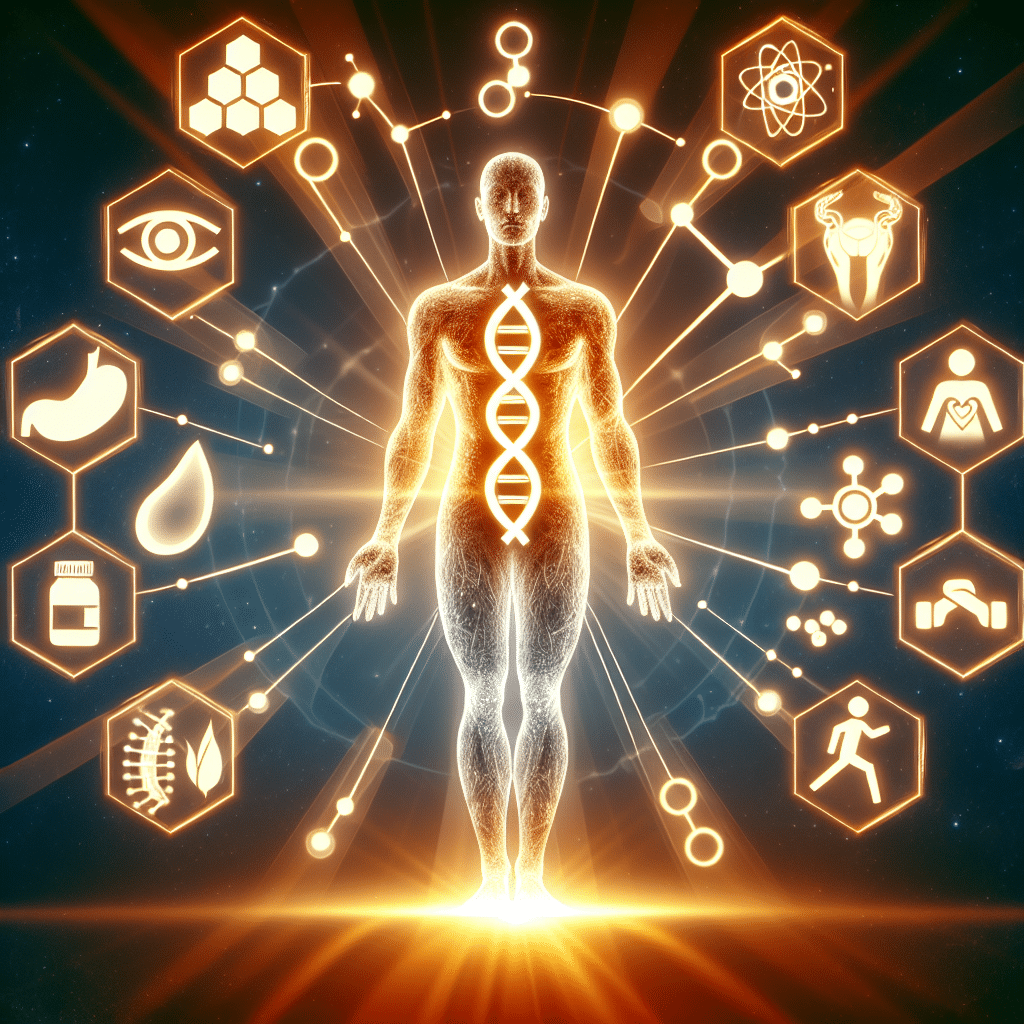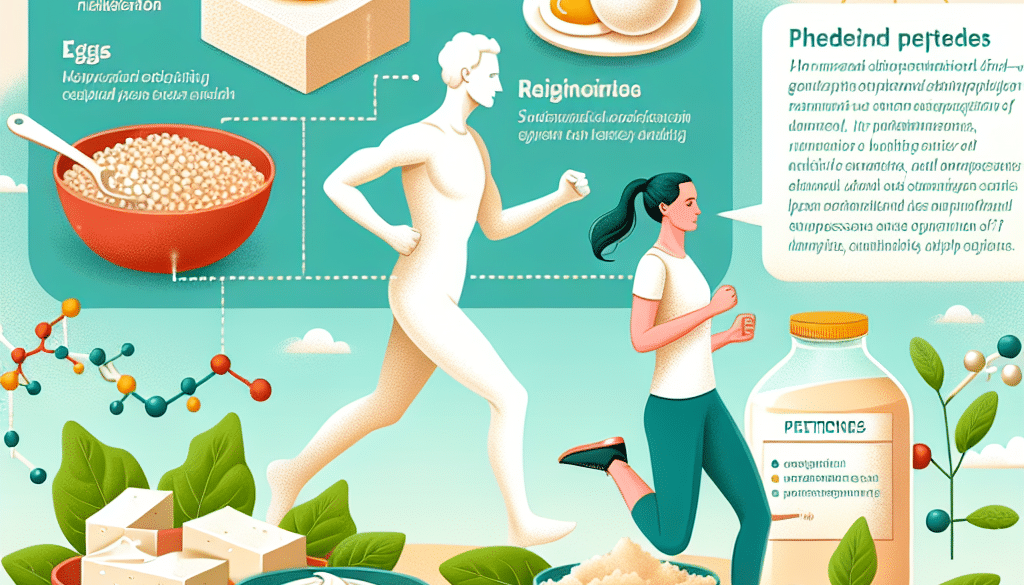Are Peptides Healthy For You?
-
Table of Contents
- Peptides: Are They a Healthy Addition to Your Diet?
- Understanding Peptides and Their Functions
- The Health Benefits of Peptides
- 1. Skin Health and Anti-Aging
- 2. Muscle Growth and Recovery
- 3. Weight Management
- 4. Bone Health
- 5. Immune Function
- Peptide Supplements: Safety and Considerations
- Peptides in Food: Natural Sources
- Case Studies and Research on Peptides
- Conclusion: Weighing the Benefits Against the Risks
- Discover ETprotein’s High-Quality Protein Products
Peptides: Are They a Healthy Addition to Your Diet?

Peptides have garnered significant attention in the health and wellness industry, with claims of their potential benefits ranging from anti-aging properties to muscle building and weight loss support. But what exactly are peptides, and are they truly beneficial for your health? This article delves into the science behind peptides, their health implications, and whether incorporating them into your diet is a wise choice.
Understanding Peptides and Their Functions
Peptides are short chains of amino acids, the building blocks of proteins. Unlike proteins, which consist of long chains of amino acids, peptides are smaller and more easily absorbed by the body. They are found naturally in many foods and are also synthesized in the body, playing a crucial role in various biological processes.
- Cell signaling and communication
- Hormone production
- Immune system response
- Tissue repair and regeneration
Due to their diverse functions, peptides have been studied for their potential therapeutic applications, leading to the development of peptide supplements and medications.
The Health Benefits of Peptides
Research has suggested that peptides may offer a range of health benefits. Here are some of the most promising findings:
1. Skin Health and Anti-Aging
Collagen peptides, for example, are widely used for their potential to improve skin elasticity and reduce wrinkles. Studies have shown that supplementing with collagen peptides can lead to healthier skin by promoting collagen production and hydration.
2. Muscle Growth and Recovery
Peptides like creatine and BCAAs (branched-chain amino acids) are popular among athletes and bodybuilders for their role in muscle synthesis and recovery after exercise.
3. Weight Management
Certain peptides have been associated with weight loss due to their ability to increase metabolism and reduce appetite. For instance, a peptide called GLP-1 is known to promote satiety and is used in some weight loss medications.
4. Bone Health
Peptides may also contribute to bone health. Research indicates that collagen peptides can support bone density by stimulating osteoblasts, the cells responsible for bone formation.
5. Immune Function
Some peptides have immunomodulatory properties, meaning they can modulate the immune system’s response, potentially leading to improved defense against diseases.
Peptide Supplements: Safety and Considerations
While peptides can be beneficial, it’s important to consider the safety and potential side effects of peptide supplements. The quality and source of the supplement, the dosage, and the individual’s health status can all influence the safety of peptide supplementation.
- Quality and Purity: High-quality, pure peptide supplements are crucial to avoid contaminants that could cause adverse effects.
- Dosage: Excessive intake of peptides can lead to side effects, so it’s important to follow recommended dosages.
- Health Status: Individuals with certain health conditions should consult a healthcare provider before taking peptide supplements.
Most peptide supplements are considered safe when used appropriately, but as with any supplement, it’s essential to do your research and consult with a healthcare professional.
Peptides in Food: Natural Sources
Peptides are naturally present in many foods, and consuming a balanced diet can provide you with a variety of peptides without the need for supplements. Here are some food sources rich in peptides:
- Meat and poultry
- Fish and shellfish
- Dairy products like milk and cheese
- Legumes and beans
- Eggs
- Whole grains
Incorporating these foods into your diet can help you reap the benefits of peptides in a natural and balanced way.
Case Studies and Research on Peptides
Several studies have highlighted the potential health benefits of peptides. For example, a study published in the Journal of Cosmetic Dermatology found that collagen peptide supplementation significantly improved skin hydration and elasticity. Another study in the Journal of the International Society of Sports Nutrition showed that BCAA supplementation could reduce muscle soreness and fatigue after exercise.
While these studies are promising, more research is needed to fully understand the long-term effects and optimal dosages of peptide supplements.
Conclusion: Weighing the Benefits Against the Risks
Peptides offer a range of potential health benefits, from improving skin health to aiding in muscle recovery. However, it’s important to approach peptide supplementation with caution, ensuring you choose high-quality products and adhere to recommended dosages. For most people, a balanced diet that includes natural sources of peptides may be sufficient to support their health needs.
Before adding peptide supplements to your regimen, consider consulting with a healthcare professional, especially if you have underlying health conditions or are taking other medications.
Discover ETprotein’s High-Quality Protein Products
If you’re looking to incorporate healthy proteins into your diet, ETprotein offers a variety of organic bulk vegan proteins that can meet your needs. Their products, including organic rice protein, pea protein, and various seed proteins, are characterized by a neutral taste, non-GMO, and allergen-free attributes. With L-(+)-Ergothioneine purity over 98%, ETprotein caters to industries such as nutraceuticals, pharmaceuticals, and food and beverage.
For those interested in the benefits of peptides and proteins, ETprotein’s offerings provide a trustworthy source. To learn more about their products or to request a sample, contact sales(at)ETprotein.com today.
About ETprotein:
ETprotein, a reputable protein and L-(+)-Ergothioneine (EGT) Chinese factory manufacturer and supplier, is renowned for producing, stocking, exporting, and delivering the highest quality organic bulk vegan proteins and L-(+)-Ergothioneine. They include Organic rice protein, clear rice protein, pea protein, clear pea protein, watermelon seed protein, pumpkin seed protein, sunflower seed protein, mung bean protein, peanut protein, and L-(+)-Ergothioneine EGT Pharmaceutical grade, L-(+)-Ergothioneine EGT food grade, L-(+)-Ergothioneine EGT cosmetic grade, L-(+)-Ergothioneine EGT reference grade and L-(+)-Ergothioneine EGT standard. Their offerings, characterized by a neutral taste, non-GMO, allergen-free attributes, with L-(+)-Ergothioneine purity over 98%, 99%, cater to a diverse range of industries. They serve nutraceutical, pharmaceutical, cosmeceutical, veterinary, as well as food and beverage finished product distributors, traders, and manufacturers across Europe, USA, Canada, Australia, Thailand, Japan, Korea, Brazil, and Chile, among others.
ETprotein specialization includes exporting and delivering tailor-made protein powder and finished nutritional supplements. Their extensive product range covers sectors like Food and Beverage, Sports Nutrition, Weight Management, Dietary Supplements, Health and Wellness Products, and Infant Formula, ensuring comprehensive solutions to meet all your protein needs.
As a trusted company by leading global food and beverage brands and Fortune 500 companies, ETprotein reinforces China’s reputation in the global arena. For more information or to sample their products, please contact them and email sales(at)ETprotein.com today.












